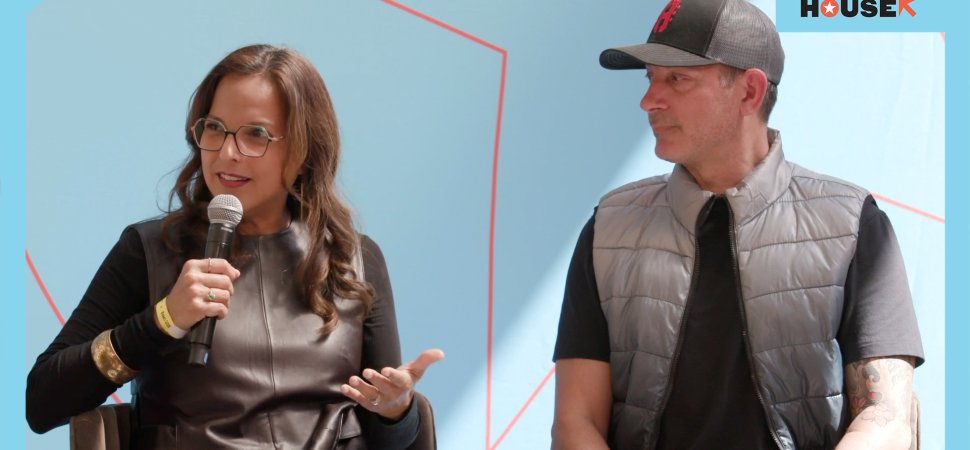| ? |
 |
|
Don't like ads? Go ad-free with TradeBriefs Premium    
CEO Picks - The best that international journalism has to offer!  S47 S47Waymo and Uber Eats start human-less food deliveries in Phoenix   Waymo and Uber have been working together on regular Ubers for a while, but the two companies are now teaming up for food delivery. Automated Uber Eats is rolling out to Waymo's Phoenix service area. Waymo says this will start in "select merchants in Chandler, Tempe and Mesa, including local favorites like Princess Pita, Filiberto's, and Bosa Donuts."
Continued here
|
| ? |
 |
 S1 S1Editor's Note: When vetting AI tools, think like a hedge fund manager, not a VC
| ? |
 |
 S2 S2Marie Howeâs Stunning Hymn of Humanity, Animated  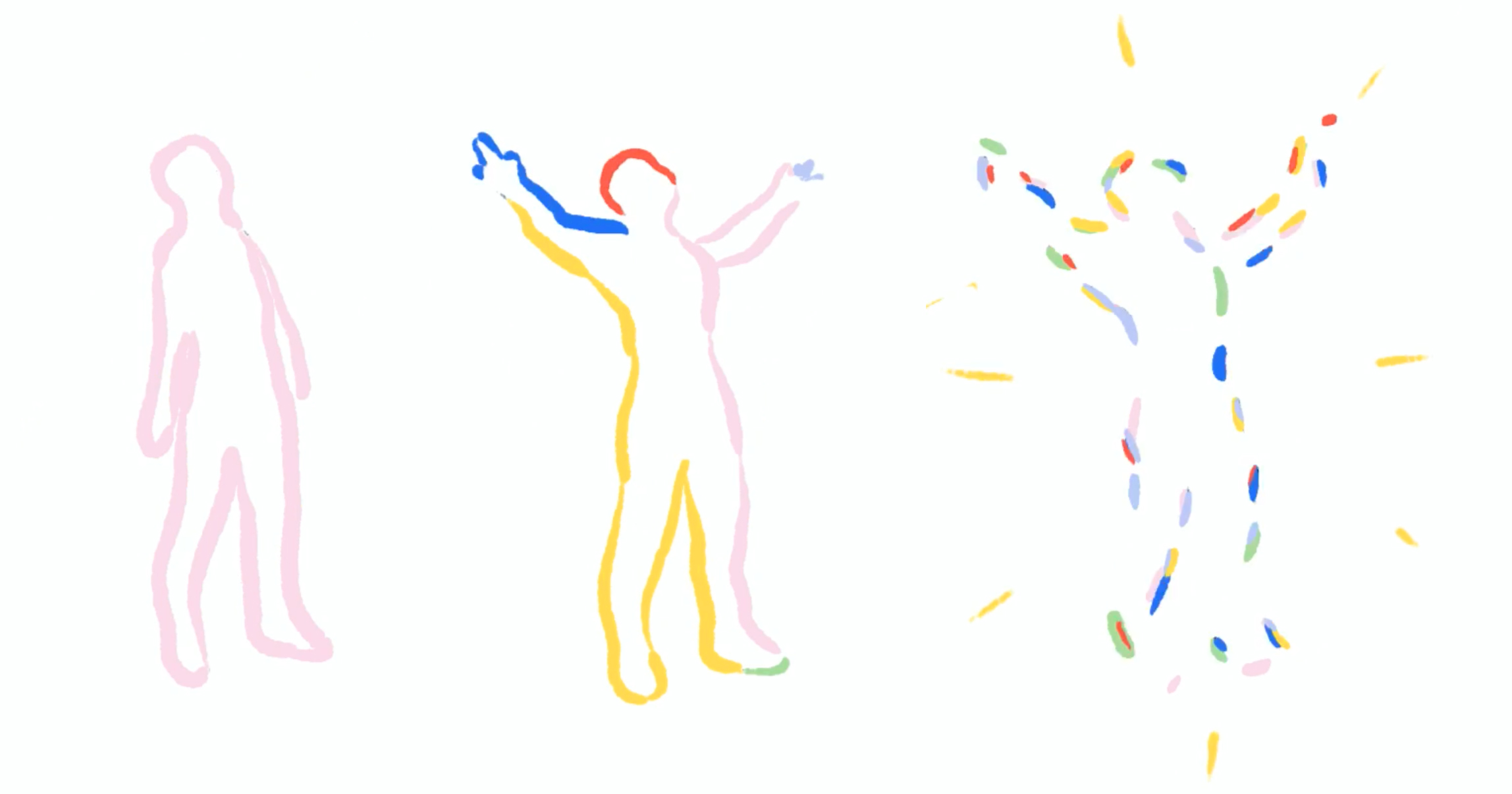 I remember singing Beethoven’s “Ode to Joy” in the choir of the Bulgarian Math Academy as a child. I remember my awe at learning that across centuries of warring nationalisms, this piece of music, based on an old Schiller poem and born of Beethoven’s unimaginable trials, had become the official Hymn of Europe — a bridge of harmony across human divides. I remember wondering as I sang whether music is something we make or something we are made of. That is what Pythagoras, too, wondered when he laid the foundation of Western music by discovering the mathematics of harmony. Its beauty so staggered him that he thought the entire universe must be governed by it. He called it music of the spheres — the idea that every celestial body produces in its movement a unique hum determined by its orbit.
Continued here
|
| ? |
 |
|
| ? |
 |
|
|
 S3 S3Editor's Note: Such tourism is set to generate upward of billion in revenue across numerous cities, from Austin, Texas, to Rochester, New York. These cities will all be prime places to see the eclipse, which will be fully visible in parts of the southern US, the Midwest, and New England.  S4 S4Let Go of the Learning Baggage   We all want to learn better. That means retaining information, processing it, being able to use it when needed. More knowledge means better instincts; better insights into opportunities for both you and your organization. You will ultimately produce better work if you give yourself the space to learn. Yet often organizations get in the way of learning.How do we learn how to learn? Usually in school, combined with instructions from our parents, we cobble together an understanding that allows us to move forward through the school years until we matriculate into a job. Then because most initial learning comes from doing, less from books, we switch to an on-the-fly approach.
Continued here
|
Editor's Note: Thinking and talking are useful elements of learning. And what we learn in our 'play' time can be valuable to our 'work' time, and there's nothing wrong with moving between the two (or combining them) during our day.  S5 S5 S6 S6Editor's Note: Dr Kroh says he is looking forward to even more sophisticated magnets that will make other surgeries less invasive than before. Chest surgery involving the lungs, or endoscopies, for instance, could one day be performed with the help of such technology.  S7 S7Editor's Note: Past research on the topic, sometimes referred to as nutrient or meal sequencing, has concluded that it can indeed benefit blood sugar, especially for those with Type 2 diabetes or pre-diabetes.  S8 S8Editor's Note: Weight loss drugs are "in such great demand" because they're effective, Dr. Tewksbury said. "It's almost Pollyanna to expect the same effect from oatmeal or oats."  S9 S9 S10 S10What was it like when humans first arose on planet Earth?  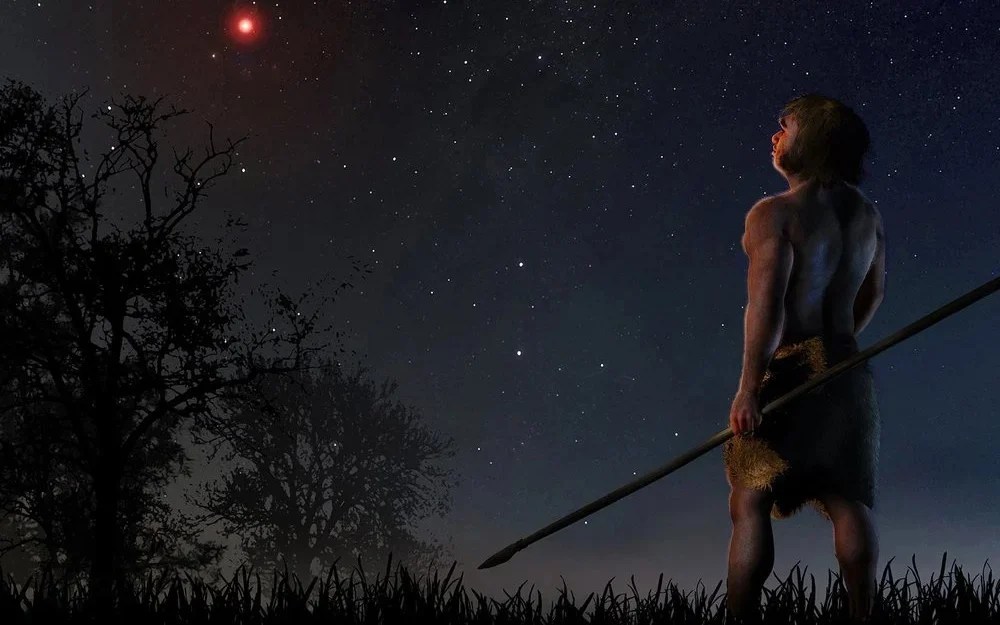 It’s hard to imagine, given how abundant and macroscopic life on Earth is today, but for nearly all of Earth’s history — upward of three billion years and likely closer to four — there were no organisms more complex than a single-celled life form on our world. It wasn’t until the Earth itself was nearly four billion years old that the advent of large plants and animals finally occurred. Complexity exploded around that time, as the combination of multicellularity, sexual reproduction, and other genetic advances brought about the Cambrian explosion. Many evolutionary changes occurred over the next 500 million years, with extinction events and selection pressures paving the way for new forms of life to arise, develop, and occupy ecological niches that suddenly became vacant.And then, around 65 million years ago, an epic event catapulted a class of small, largely scavenger animals — the mammals — into a prominent role they had never occupied before. As a catastrophic asteroid strike occurred, it wiped out not only the dinosaurs, but practically every animal weighing over 25 kg (excepting leatherback sea turtles and some crocodiles). This was Earth’s most recent great mass extinction, and left a large number of niches unfilled in its wake. Mammals rose to prominence on land in the aftermath of this event, leading to the first humans, which arose fewer than 1 million years ago. Here’s our story.
Continued here
|
 S11 S11GitHub COO Kyle Daigle on the "secret of good AI"   There is a common plot device used in science fiction where a primitive life form will encounter some strange or more advanced technology. Initially, the creature simply stares at the device. Like a monkey with an iPhone, they bash and abuse the technology. Over time, either the protagonists or we, the audience, will work out the proper usage. For instance, the entire plot of Arthur C. Clarke’s Rendezvous with Rama features human explorers who board the alien spacecraft Rama to find themselves faced with technologies they cannot comprehend.The same is true, too, in real life. There have been many moments in history when humans have discovered or invented a thing, only for it to take a great deal longer to work out how to best use it. Once the steam engine gained popularity in the 18th century, it took nearly a century to figure out how to transform this energy into useful consumer and industrial products. When Heinrich Hertz discovered radio waves in the late 19th century, he speculated they might not have any practical value whatsoever. It took another few decades before Guglielmo Marconi invented the radio. The internet languished as military technology for twenty years until commercial and civilian use became obvious.
Continued here
|
 S12 S12Daniel Kahneman's transformative insights on rationality and happiness   In 350 BCE, Aristotle wrote a book about the soul — or, more accurately, different types of souls. For Aristotle, a soul is what turns a lifeless lump of flesh into a walking, talking, singing, fighting, crying, and laughing thing. It’s what animates the inanimate, but it’s also what gets you out of bed in the morning. A soulless person is listless. A soulful person is full of beans. A soul is what drives all living things to carry on. But not all living things are in the same game.Aristotle believed there were three “levels” of souls, each better than the last. The first, and least impressive, is the “nutritive soul” of plants. They eat, drink, and turn to the Sun. Impressive in the lifeless cosmos, but unimpressive compared to the rest of nature. The next best soul is the sensitive soul of animals. They feel and react. They make decisions, even if they are basic and determined by their biology. But the highest of all souls is that of humans. We have rationality, logic, and higher cognitive states.
Continued here
|
 S13 S13A quick 13.8-billion-year story of our Universe   It’s tempting to picture the embryonic universe, before the Big Bang, as a seed, pregnant with all the possibility of the cosmos to come, ready to germinate. But as far as we understand, the universe was already growing when it began. This means it wasn’t a beginning at all, but rather the start of a new phase of its existence. For simplicity’s sake, and since all stories need a beginning, let’s say that our universe began with growth.This was not the generative growth of a germinating seed. This was a lacerating, annihilating growth, one that destroys, tears, and rends. It was the growth of space itself.
Continued here
|
 S14 S14The best clues to life on Mars could be in these Idaho fossils  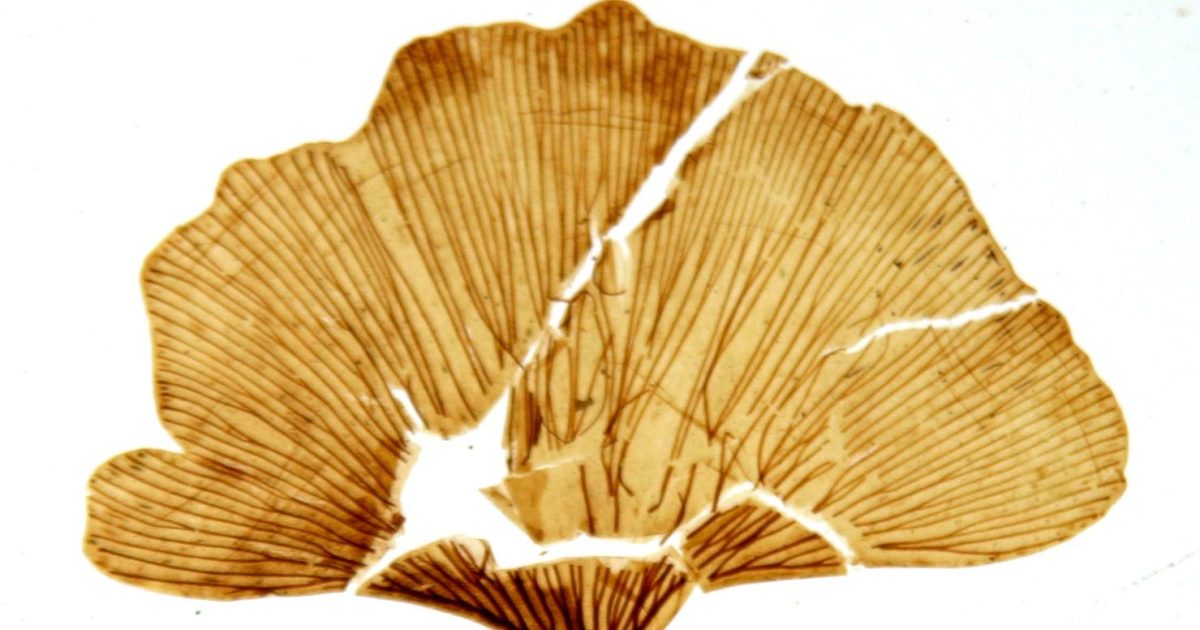 Does life exist elsewhere in the universe? If so, how do scientists search for and identify it? Finding life beyond Earth is extremely difficult, partly because other planets are so far away and partly because we are not sure what to look for.Yet, astrobiologists have learned a lot about how to find life in extraterrestrial environments, mainly by studying how and when the early Earth became livable.
Continued here
|
 S15 S15The Biggest Venture Funding Category in Q1 Wasn't AI   Global funding reached $66 billion in Q1, with healthcare and biotech companies picking up 24 percent of the total. By contrast, AI companies raised $11.4 billion, or 17 percent of the global expenditure. Year-over-year, funding slumped overall in Q1: In the first quarter of 2023, global funding reached $82.1 billion, which is a decline of 20 percent, Crunchbase notes. Among the notable startups in biotech is San Diego-based Mirador Therapeutics, which raised $400 million in a Series A round in March. The company focuses on developing medicines for people with immune deficiencies. Major deals have continued into the early days of April, according to Fierce Biotech, an industry publication. Diagonal Therapeutics, a developer of antibody therapies, and Alterome Therapeutics, which treats oncological diseases, raised $128 million and $132 million this week, respectively.Â
Continued here
|
 S16 S16Amazon Scales Back Just Walk Out Technology, but It's Not the End of Checkout-Free Shopping  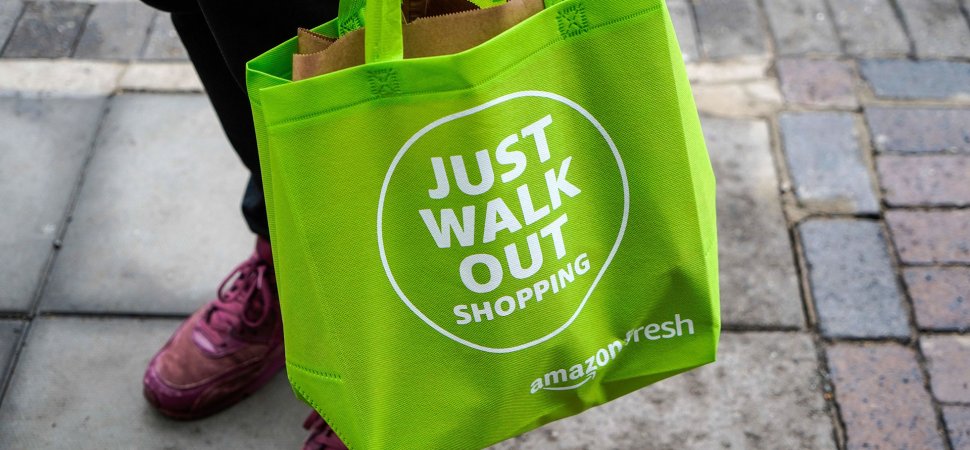 That's in spite of the fact that Amazon eliminated its Just Walk Out technology from its Amazon Fresh stores. The Information reported the news earlier this week, adding that the tech wasn't quite as automated as it seemed: It required more than 1,000 workers in India to monitor the system.Moving forward, the company will still use its Just Walk Out tech in select Amazon Go stores and in its Amazon Fresh stores in the U.K., and also plans to use smart carts, which will eliminate the need for customers to stand in line and also allow them to keep track of their purchases as they shop.
Continued here
|
 S17 S17Women-Led Startups Are Facing a Double-Dip Downturn. How Founders Can Weather It   For the past two years, entrepreneurs have been operating their businesses in a high interest rate environment in which bankers are stiffening loan standards and venture capital firms pulling back funding. That impact is compounded on female founders, who are now facing a double-dip downturn, says Alison Wyatt, co-founder and CEO of the Female Founder Collective. That's because not only did overall funding to all women-led companies decline last year in terms of the amount of money invested and the number of deals struck, according to a recent report from Pitchbook, but the industries that female entrepreneurs tend to congregate also took a hit. "The types of businesses that women are building are more focused in the consumer sectors, which are the sectors that are having trouble," says Wyatt, who co-founded the network for women-led businesses along with fashion designer and entrepreneur Rebecca Minkoff. "You're seeing venture capitalists shy away from consumer, because they're not seeing the same returns on exit that they need."
Continued here
|
 S18 S18 S19 S19Target's In-House Ad Business Is Helping Brands Boost Sales   The Minneapolis-based corporation experienced a drop in merchandise sales in 2023--the first time it's experienced a dip since 2016, CNN reported in March. But another part of the business is thriving. Roundel, Target's in-house ad business grew more than 20 percent in its fiscal year that ended on February 3, Reuters reported. Target shared that Roundel grew more than 60 percent and delivered more than $1 billion in value in both 2021 and 2022.Launched in 2016, Roundel says it boosts customers' visibility by using consumer data from more than 165 million people to run ads on the platforms of more than 150 publishing partners. For example, a dog owner might see a commercial for pet food while watching a show on Roku streaming stick or a baking enthusiast might come across a display ad for a new kitchen tool while scrolling on Pinterest.
Continued here
|
 S20 S20The Omni Hotel Cyberattack Shows the Kind of Chaos That Can Happen When You're Unprepared for a Hack   Omni Hotels & Resorts suffered a cyberattack last week, causing havoc for guests and hotel employees during Easter weekend. The attack, first reported by Bleeping Computer, took down systems across the Dallas-based hotel chain, including reservations and payment systems.On Reddit, posters said that because hotels couldn't issue new room keys, guests checking in over the weekend had to call an employee to be let into their rooms, sometimes waiting up to half an hour for someone to arrive. Others said hotel employees were forced to take down credit card information by hand. "Vegas-size lines to check in last night," wrote one poster who said they were at the Omni Shoreham in Washington, DC. So far, it is unclear who is behind the attack, or whether customer data was compromised.
Continued here
|
 S21 S21 S22 S22The IRS is Going After 12,000 Businesses Over Employee Retention Tax Credits   The Internal Revenue Service is making headway in shooting down $1 billion worth of Employee Retention Credits (ERCs) that were wrongfully claimed. The agency intends to recoup funds from more than 12,000 businesses--and that number could climb given that the credit was heavily marketed to small businesses by so-called ERC mills. The IRS announced in late March that it has already clawed back hundreds of millions worth of ERCs. Propped up by Congress in March 2020, the credit was designed to incentivize hard-hit employers to keep workers on staff during the pandemic.
Continued here
|
 S23 S23Cocoa and Vanilla Prices Are on the Rise: How Businesses Can Navigate the Challenge  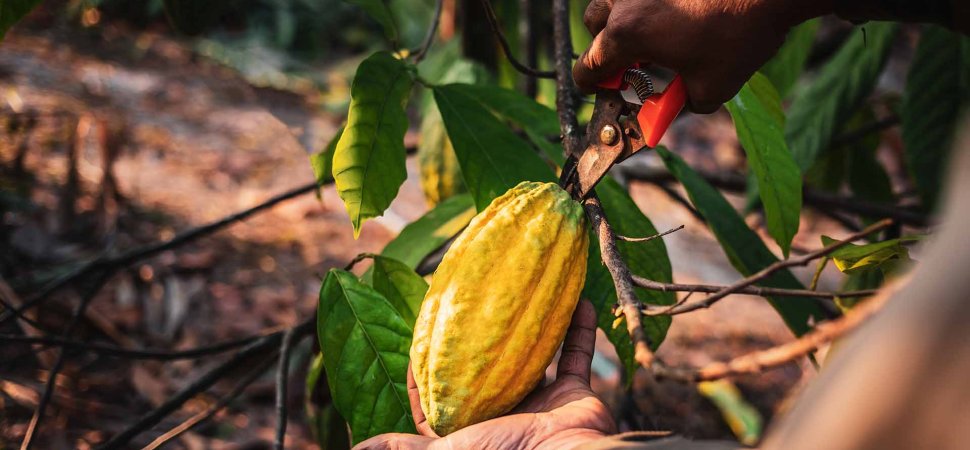 According to research from J.P. Morgan, the reason behind the cocoa price hike is a global cocoa shortage caused by a drought in West Africa, which accounts for about 80 percent of the world's cocoa output.Climate change is also a factor in the vanilla shortage: Madagascar produces approximately 80 percent of the world's vanilla, but according to the United Nations, the nation has seen an unprecedented number of cyclones in recent years (as well as the worst drought in four decades).Â
Continued here
|
 S24 S24In Just 8 Words, Muhammad Ali Delivered a Master Class in Leadership   Chances are, if you're like me, you didn't know that heavyweight boxing champ Muhammad Ali also dipped his toe into the world of professional wrestling from time to time during his illustrious career. Well, it's true.More specifically, in 1976, the Greatest fought in the "War of the Worlds" exhibition match against Antonio Inoki, a Japanese pro wrestler (Ali's leg almost had to be amputated due to an infection and blood clots he suffered during the match), and in 1985, he served as a guest referee for a WrestleMania I match between Hulk Hogan, Mr. T, "Rowdy" Roddy Piper, and "Mr. Wonderful" Paul Orndorff.
Continued here
|
 S25 S25How to Address a Resume Gap When Switching Careers   The prospect of a new career can hold a sense of excitement. But what should you do if your job search has become a disheartening slog and the gap on your resume just seems to be growing wider by the day? What can you do to protect your mental health and rekindle your optimism for the future? In this article, the author offers practical advice to help you navigate your career switch when you’re worried about a widening gap on your resume.
Continued here
|
 S26 S26Leading the 6-Generation Workforce   Giving each generation — and, importantly, each individual — the opportunity to be seen, understood, valued, and leveraged in the workplace throughout the course of their career is essential for personal, social, and even societal well-being. This author offers five steps leaders can take to create healthy six-generation organizations.
Continued here
|
 S27 S27How to Discuss the Undiscussables on Your Team   Surfacing the undiscussables on your team may be uncomfortable, but it must be an ongoing campaign, or they will sneakily build up in the background and impact your employees’ morale. In this article, the author explains how to spot the classic signs of undiscussables — meetings marked by quick consensus, a lack of productive debate, or uneven participation — and offers strategies on how to uncover those unexpressed thoughts and feelings to help your team work more productively.
Continued here
|
 S28 S28Jumia Food's shutdown left hundreds of drivers jobless, unable to withdraw earnings   On December 12, James Murimbi heard a rumor about Jumia Foods exiting Kenya from a group of fellow food delivery workers. But he brushed the news aside and thought they were “bluffing.”The next day, however, he was abruptly locked out of the food delivery app that he had been working for since June 2022. Murimbi spent the following two weeks trying to reach the company to retrieve the 4,500 shillings ($34.62) he made during his final week on the job. “To date, I have not received my money,” he told Rest of World. “That small amount would have helped to at least buy food. From the time the company closed, I am still struggling.”
Continued here
|
 S29 S29These Women Came to Antarctica for Science. Then the Predators Emerged  Content warning: This article includes scenes of physical and sexual harassment and assault.The trouble in Antarctica started in Boston. It was August 1999, and Stanford geologist Jane Willenbring was then a 22-year-old self-described "country bumpkin." She had just arrived to start her master's in earth science at Boston University. As an undergrad with an oboe scholarship at North Dakota State University, she'd studied beetle fossils found in Antarctica and learned how, millions of years ago, the now frozen continent once pooled with freshwater lakes. "That's not so different from the conditions we might expect in the future," she says. She wanted to explore this critical science. "It seemed really important for future global climate change," she says.
Continued here
|
 S30 S30The Influencers with as Much Presidential Access as the Press  Campaigns and politicians have experimented with influencer marketing over the past four years. But recruiting content creators to reach voters is already happening more than ever in 2024. The Biden campaign has built out a powerful digital operation with a few staffers specifically focused on online persuasion. The White House briefed dozens of online creators on President Biden's State of the Union address ahead of the speech. Robert F. Kennedy Jr. will show up on pretty much any creator's channel or podcast.Politics has never been strangerâor more online. WIRED Politics Lab is your guide through the vortex of extremism, conspiracies, and disinformation.
Continued here
|
 S31 S31How Social Media Turned Into a Shopping Mall  Hey, did you see the ad for that Bluetooth-enabled shiatsu foot massager? How about the one for the organic mushroom supplement powder? They're probably not even the most interesting things you can buy on TikTok or Instagram. Just as the apps have thrived on a steady stream of feel-good content, they have also inundated their users with cheap, bright, and shiny stuff they can swipe through and buy with just a few taps. It's a trend that's spread out to every social site and has taken a unique shape on TikTok through the platform's new, experimental TikTok Shop. Now, it's hard to get through a couple of videos without being accosted by virility pills, fast fashion, and hangover cures.This week on Gadget Lab, WIRED staff writer Amanda Hoover joins us to talk about the weird world of TikTok Shop, how its fee structure is evolving, and why it feels like every single social media service is pivoting to zany products.
Continued here
|
 S32 S32TCL QM8 Review: A TV That Scratches the Projector Itch  If you buy something using links in our stories, we may earn a commission. This helps support our journalism. Learn more. Please also consider subscribing to WIREDSince the beginning of broadcast, TV brands have been battling for technological supremacy. They were all expensive. From initial tube models to plasmas, LED, and now Mini LED and OLED, you used to have to pay an arm and a leg for a large screen that looked good. (Unless you wanted it in a Michael Scott dinner-party size, of course.)
Continued here
|
 S33 S33OpenAI's GPT Store Is Triggering Copyright Complaints  For the past few months, Morten Blichfeldt Andersen has spent many hours scouring OpenAIâÂÂs GPT Store. Since it launched in January, the marketplace for bespoke bots has filled up with a deep bench of useful and sometimes quirky AI tools. Cartoon generators spin up New YorkerâÂÂstyle illustrations and vivid anime stills. Programming and writing assistants offer shortcuts for crafting code and prose. ThereâÂÂs also a color analysis bot, a spider identifier, and a dating coach called RizzGPT. Yet Blichfeldt Andersen is hunting only for one very specific type of bot: Those built on his employerâÂÂs copyright-protected textbooks without permission.Blichfeldt Andersen is publishing director at Praxis, a Danish textbook purveyor. The company has been embracing AI and created its own custom chatbots. But it is currently engaged in a game of whack-a-mole in the GPT Store, and Blichfeldt Andersen is the man holding the mallet.
Continued here
|
 S34 S3433 Best Nintendo Switch Games for Every Player (2024)  If you buy something using links in our stories, we may earn a commission. This helps support our journalism. Learn more. Please also consider subscribing to WIREDThe Switch is one of Nintendo's most successful and influential systems ever. There's something unique about carrying a home-console-quality gaming device everywhere you go. Figuring out what to play, thoughâthat's getting harder every year, as the roster of first-party and indie games grows deeper and deeper.
Continued here
|
 S35 S35The Future of Video Games Is ... Reality TV?  Over by the pool, a slap fight breaks out. Two cast members, no longer content to trade insults, are flailing at each other with the fervor of a schoolyard fight. Camera screen bouncing, the producer sprints over to get footage.It's 1999, and players are producing the latest season of the hot reality show, The Crush House. That job includes picking the cast, capturing the drama, and above all satisfying the ever-changing audience to keep the show on the air. Fail, and you're canceled, in the most traditional sense of the word.
Continued here
|
 S36 S36To Build a Better AI Supercomputer, Let There Be Light  Most artificial intelligence experts seem to agree that taking the next big leap in the field will depend at least partly on building supercomputers on a once unimaginable scale. At an event hosted by the venture capital firm Sequoia last month, the CEO of a startup called Lightmatter pitched a technology that might well enable this hyperscale computing rethink by letting chips talk directly to one another using light.Data today generally moves around inside computersâand in the case of training AI algorithms, between chips inside a data centerâvia electrical signals. Sometimes parts of those interconnections are converted to fiber-optic links for great bandwidth, but converting signals back and forth between optical and electrical creates a communications bottleneck.
Continued here
|
 S37 S37 S38 S38A TikTok Whistleblower Got DC's Attention. Do His Claims Add Up?  The United States government is currently poised to outlaw TikTok. Little of the evidence that convinced Congress the app may be a national security threat has been shared publicly, in some cases because it remains classified. But one former TikTok employee turned whistleblower, who claims to have driven key news reporting and congressional concerns about the app, has now come forward.Zen Goziker worked at TikTok as a risk manager, a role that involved protecting the company from external security and reputational threats. In a wrongful termination lawsuit filed against TikTok's parent company ByteDance in January, he alleges he was fired in February 2022 for refusing âÂÂto sign offâ on Project Texas, a $1.5 billion program that TikTok designed to assuage US government security concerns by storing American data on servers managed by Oracle.
Continued here
|
 S39 S39My Synesthesia Transforms Speech into Text I 'See' in My Head   From the time I learned to read, I have experienced a form of mental closed-captioning called ticker-tape synesthesiaI spend my days surrounded by thousands of written words, and sometimes I feel as though there’s no escape. That may not seem particularly unusual. Plenty of people have similar feelings. But no, I’m not just talking about my job as a copy editor here at Scientific American, where I edit and fact-check an endless stream of science writing. This constant flow of text is all in my head. My brain automatically translates spoken words into written ones in my mind’s eye. I “see” subtitles that I can’t turn off whenever I talk or hear someone else talking. This same speech-to-text conversion even happens for the inner dialogue of my thoughts.
Continued here
|
 S40 S40 S41 S41IVF Treatment in the U.S. May Be at Risk, Scientists Warn   An Alabama court ruling that human embryos outside the uterus should be regarded as children has raised concerns among doctors and scientists about the future of the fertility treatment in vitro fertilizationA fertility treatment that has been used for 45 years is once again available in Alabama. In vitro fertilization (IVF) procedures in the state were halted after the Alabama Supreme Court ruled in February that embryos created using the technique have the same rights as children. A new state law protecting clinics from legal fallout has allowed IVF treatments to resume — but clinicians and scientists in the United States who are working with human embryos are not totally reassured and fear that they will face an increasing number of legal and constitutional challenges.
Continued here
|
 S42 S42Black Rats Ruled North America--Until Brown Rats Showed Up  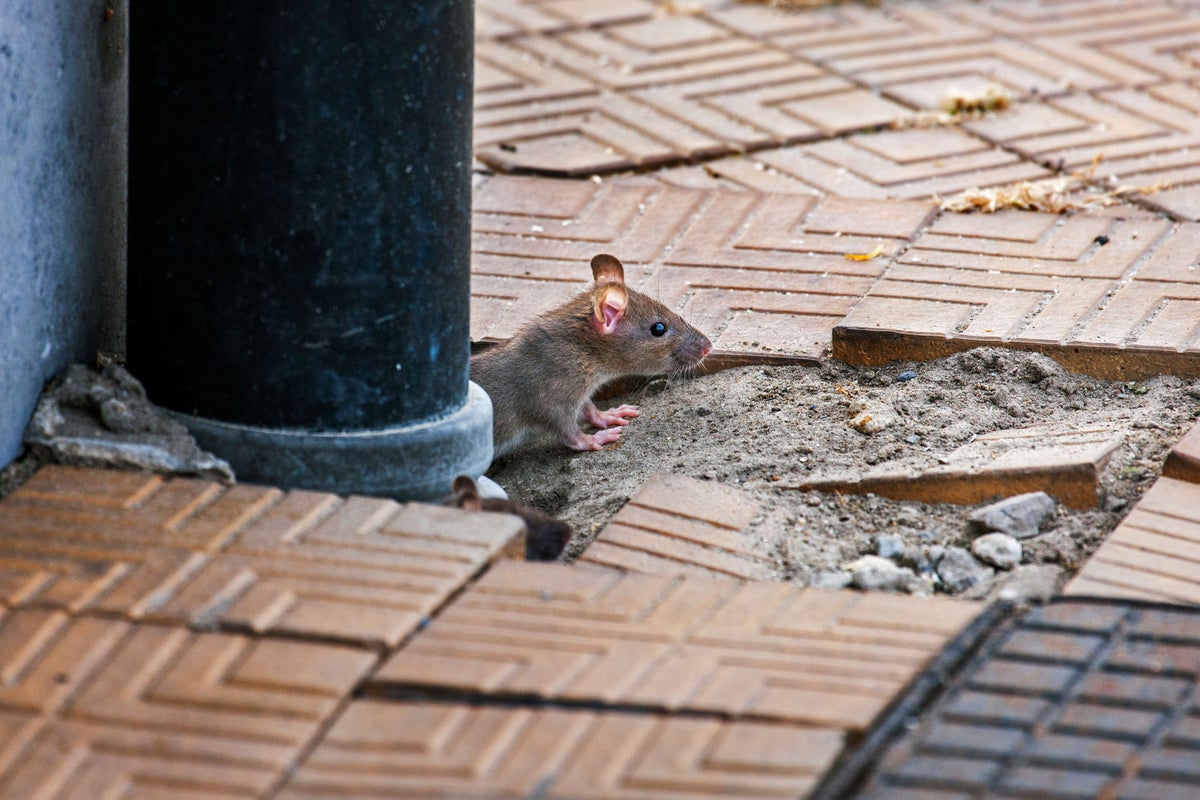 Rat remains from shipwrecks and dig sites show how two rodent species duked it out in eastern North AmericaThe Black Death first swept through Europe in the mid-1300s, killing tens of millions of people. But it didn’t stop there—the plague-causing bacterium Yersinia pestis hid inside the bodies of black rats (Rattus rattus) and continued to cause smaller outbreaks as fleas transmitted it from rats to humans for hundreds of years afterward. Then in the mid-1700s these outbreaks largely stopped. The timing coincides with the introduction of brown rats (Rattus norvegicus), which spread from Asia and outcompeted black rats almost as soon as they set their little clawed feet on the European continent.
Continued here
|
 S43 S43The Victorian Woman Who Chased Eclipses  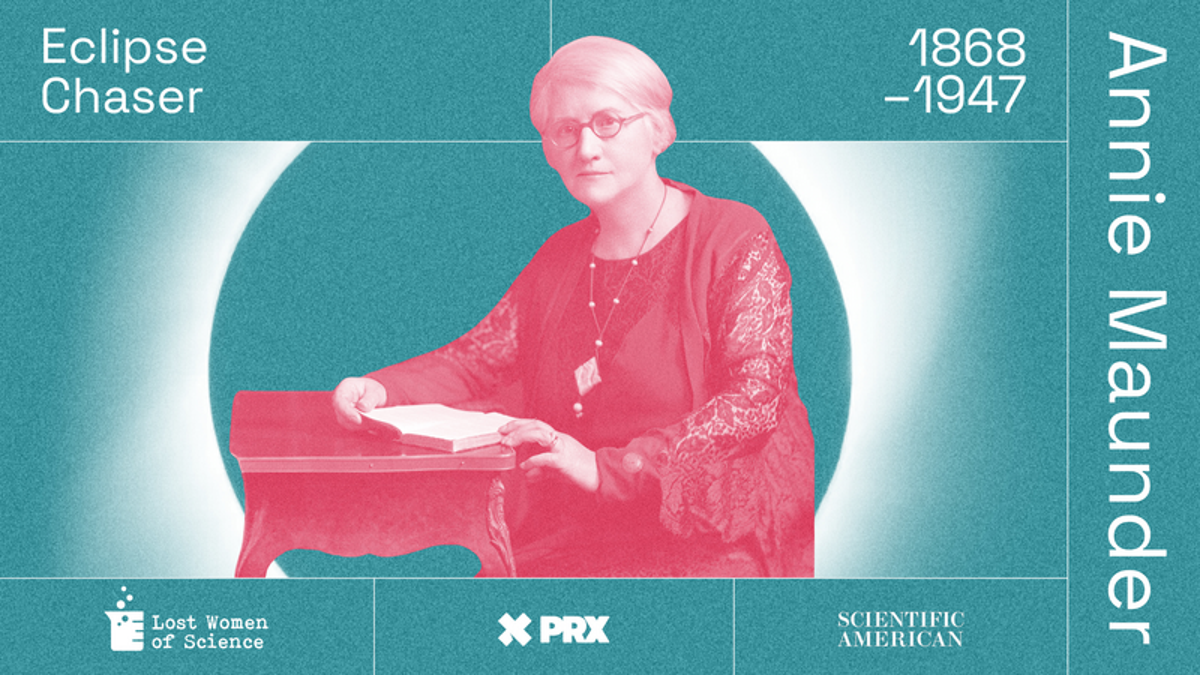 Annie Maunder was an astronomer who expanded our understanding of the sun at the turn of the 20th century. Her passion was photographing eclipses.It is December 1897 in England, and Annie Maunder, an amateur astronomer, is boarding a steamship bound for India. Her goal: to photograph a total solar eclipse. Like the many people in North America whose gaze will turn upward on April 8, Maunder was fascinated by the secrets of the sun and was determined to travel the globe and unlock them. She understood that the few minutes of darkness during a solar eclipse presented a special opportunity to explore the nature of the sun. Her observations led to our greater understanding of how our star affects Earth, but like so many early female scientists, her contributions and achievements have been forgotten.
Continued here
|
 S44 S44Decades-old Cans of Salmon Reveal Changes in Ocean Health   Researchers used tinned fish to reconstruct parasitic population change, giving new meaning to the phrase “opening a can of worms”Chelsea Wood, a parasite ecologist at the University of Washington, and her then graduate student Natalie Mastick had been pondering for months how they could reconstruct fluctuations over time in the risk parasites pose to marine mammals in the Pacific Northwest. No long-term datasets exist for the vast majority of parasitic species, so Wood and Mastick knew they’d have to get creative. One idea they had was to use salmon’s parasitic loads as proxies for marine mammal infection.
Continued here
|
 S45 S45 S46 S46A futuristic vision for Latin America, rooted in ancient design   What would Latin America look like if colonization hadn't interrupted its ancient civilizations? Imagining a future where ancestral knowledge intertwines with modern aesthetics, designer Catalina Lotero shows how "pre-Columbian futurism" draws inspiration from Indigenous symbolism and technology — empowering Latin America to reclaim lost cultural narratives.
Continued here
|
 S48 S48101 studies flagged as bogus COVID cure pusher sees career unravel  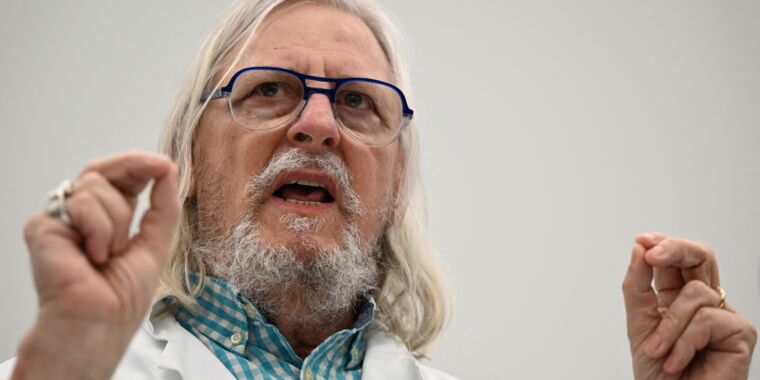 A scientific journal published by Elsevier has reportedly posted a stunning 101 expressions of concern on studies connected to Didier Raoult, a disgraced French microbiologist who gained international prominence amid the pandemic by promoting, with little evidence, that the malaria drug hydroxychloroquine could treat COVID-19—a claim that has now been firmly debunked.
Continued here
|
 S49 S49 S50 S50Unleash the beast: High Performance Cycle's electric mountain bike  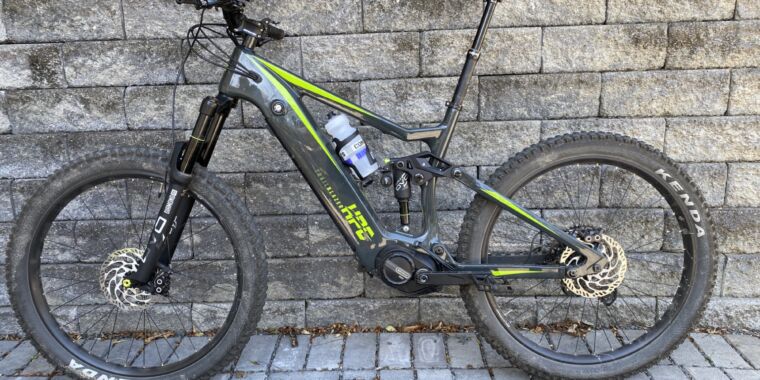 I found myself in the air long enough to give some thought to how I could land while remaining atop the bicycle I had been riding the instant before I hit the jump. Based on similar experiences while skiing, I immediately recognized that this invariably meant very bad things. A few seconds later, as I was brushing dirt out of the abrasions I had just picked up, I contemplated where I had gone wrong.
Continued here
|
 |
TradeBriefs Publications are read by over 10,00,000 Industry Executives About Us | Advertise Privacy Policy Unsubscribe (one-click) You are receiving this mail because of your subscription with TradeBriefs.
Our mailing address is GF 25/39, West Patel Nagar, New Delhi 110008, India |


















































































































